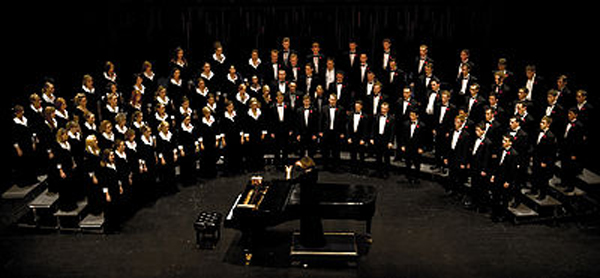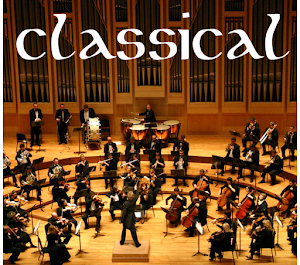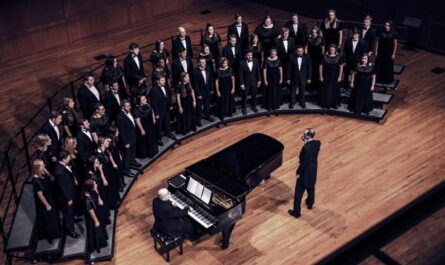Wolfgang Amadeus Mozart is one of the most renowned classical composers of all time, known for his prodigious talent and contributions to the genre. Born in Salzburg, Austria in 1756, Mozart showed an early aptitude for music, composing his first piece at just five years old. Over the course of his short life, he produced an impressive body of work that continues to inspire and influence musicians today.
Mozart Childhood and Early Beginnings
Mozart’s Family Background
Mozart was born into a musical family, with his father Leopold being a renowned composer and music teacher. Leopold recognized his son’s talent early on and began providing him with music lessons at a young age. Mozart’s sister Maria Anna, who was also musically gifted, often performed alongside him in their father’s concerts.
Mozart Childhood and Early Musical Education
Mozart’s musical education began at home, with his father serving as his primary teacher. By the age of six, Mozart was already performing in public and had begun composing his own music. He also received instruction from prominent musicians of the time, including Johann Christian Bach and Christoph Willibald Gluck.
Mozart First Compositions
Mozart’s first compositions were simple keyboard pieces and minuets, which he wrote as a young child. As he grew older, he began to experiment with more complex forms, such as sonatas and operas. By the age of 13, he had already composed several symphonies, concertos, and operas, cementing his status as a child prodigy.
Mozart Career as a Child Prodigy
Mozart Tours Across Europe
Mozart’s talent quickly gained him recognition throughout Europe, and he embarked on several tours with his family to perform for royalty and the aristocracy. He visited cities such as Paris, London, and Munich, where he was celebrated for his prodigious talent as a composer and performer.
Mozart Musical Development as a Child
During his tours, Mozart was exposed to a wide range of musical styles and influences, which helped to shape his own unique sound. He studied the works of composers such as Bach, Handel, and Haydn, and incorporated elements of their styles into his own compositions.
Mozart Relationship with his father
Mozart’s relationship with his father was complex, with Leopold often pushing his son to achieve greater success and recognition. Despite this pressure, Mozart remained close to his father and relied on him for guidance throughout his career.
Mozart Adult Life and Works
Mozart Life in Vienna
In 1781, Mozart moved to Vienna, where he spent the remainder of his life. He quickly established himself as a prominent composer and performer, and his works were well-received by audiences and critics alike. He also became involved in the city’s thriving musical culture, collaborating with other musicians and composers.
Mozart Operas
Mozart is perhaps best known for his operas, which remain some of the most beloved works in the classical repertoire. He wrote over 20 operas in his lifetime, ranging from lighthearted comedies such as “The Marriage of Figaro” to darker, more dramatic works such as “Don Giovanni” and “The Magic Flute.”
Mozart Chamber Music
In addition to his operas, Mozart also composed a significant amount of chamber music, including string quartets, piano trios, and sonatas. These works showcase his mastery of form and structure, as well as his ability to convey a wide range of emotions through music.
Mozart Symphonies and Concertos
Mozart was also a prolific composer of symphonies and concertos, many of which are still performed by orchestras around the world today. His works in these genres are notable for their technical virtuosity and emotional depth.
Mozart Sacred Music
Mozart’s sacred music, including his Requiem Mass and several other works written for the church, are some of his most powerful and moving compositions. These pieces combine elements of his classical style with a reverent, spiritual tone, creating a transcendent listening experience.
Mozart Influence on Music Education
Mozart’s contributions to classical music were not limited to his compositions alone. He also had a profound impact on music education, advocating for a more holistic approach to teaching music that emphasized both theory and practice. His ideas helped to shape the way music is taught and learned to this day.
Mozart Most Famous Works
“Eine Kleine Nachtmusik”
One of Mozart’s most famous works is “Eine Kleine Nachtmusik,” a serenade for string orchestra that he composed in 1787. The piece is notable for its catchy melodies and lively rhythms and has become a popular staple in classical music repertoire.
“The Magic Flute”
“The Magic Flute” is one of Mozart’s most beloved operas, blending elements of comedy, fantasy, and drama into a captivating story. The opera features some of Mozart’s most beautiful and memorable music, including the famous aria “Queen of the Night.”
“Requiem”
Mozart’s Requiem Mass is one of his most powerful and moving compositions, written in the final months of his life. The piece is notable for its emotional intensity and technical virtuosity and has become an enduring testament to Mozart’s legacy.
“Don Giovanni”
“Don Giovanni” is a dark and dramatic opera that follows the exploits of the infamous Don Juan. The opera features some of Mozart’s most complex and challenging music, including intricate ensemble pieces and powerful arias.
“Symphony No. 40”
Mozart’s Symphony No. 40 is one of his most famous works in the symphonic genre. The piece is notable for its emotional depth and technical complexity and showcases Mozart’s mastery of form and structure.
Analysis and Significance of These Works
Mozart’s most famous works continue to captivate audiences today, showcasing his unique musical voice and his ability to convey a wide range of emotions through music. These pieces are significant not only for their artistic merit, but also for their enduring impact on the genre of classical music as a whole.
Mozart Musical Style and Techniques
Classical Music Characteristics
Mozart’s music is characterized by the classical style, a genre that emphasized clarity, balance, and simplicity. Classical music is known for its emphasis on melody and harmony, as well as its use of formal structures such as sonata form.
Mozart Unique Style and Contributions
Within the classical genre, Mozart’s music is notable for its emotional depth and technical virtuosity. He was known for his ability to convey a wide range of emotions through his music, from lighthearted humor to profound tragedy. He also incorporated elements of other musical styles, such as opera and folk music, into his compositions, creating a unique and distinctive sound.
Mozart’s Techniques and Innovations
Mozart’s music was notable for its technical complexity and virtuosity, as well as its innovative use of form and structure. He experimented with new techniques such as thematic development and expanded the classical forms of his time, such as the sonata and concerto.
Influence on Later Composers
Mozart’s impact on classical music was profound, influencing generations of composers who followed him. His unique style and innovations helped to shape the direction of classical music in the years and decades that followed, and his works remain an important part of the classical repertoire today.
Mozart’s Influence on Classical Music
Impact on the Classical Era
Mozart’s contributions to classical music were significant, helping to define the genre and establish it as a serious art form. His works were popular and influential during his lifetime, and his legacy continued to grow in the years after his death.
Influence on Later Composers and Genres
Mozart’s influence on music extended far beyond the classical era, inspiring generations of composers in a wide range of genres. His unique style and techniques helped to shape the course of music history, and his works continue to be studied and performed by musicians around the world.
Mozart’s Musical Legacy
Mozart’s legacy as a composer and musician remains strong today. His works continuing to inspire and captivate audiences around the world. His contributions to classical music helped to establish the genre as a vital and enduring art form, and his influence on music history is impossible to overstate.
Mozart’s Cultural Impact and Adaptations
Mozart in Popular Culture
Mozart’s music has become a staple of popular culture, appearing in films, television shows, and advertisements around the world. His works have been adapted and reimagined in a variety of contexts, showcasing the enduring appeal of his music.
Mozart’s Music in Film and Television
Mozart’s music has been featured in numerous films and television shows, from period dramas such as “Amadeus” to animated films such as “Fantasia.” His works often provide the perfect backdrop for dramatic or emotional scenes, adding depth and resonance to the storytelling.
Mozart’s Music in Advertising and Marketing
Mozart’s music has also been used in advertising and marketing campaigns. It provides a sense of sophistication and elegance to brands and products. His works have been featured in commercials for everything from luxury cars to perfume, showcasing the inherent versatility and appeal of his music.
Mozart’s Relevance Today

Mozart Continued Popularity
Mozart’s music remains popular and beloved today, with his works continuing to be performed and studied by musicians around the world. His unique style and innovations continue to captivate audiences, showcasing the enduring appeal of classical music.
Mozart’s Role in Classical Music Education
Mozart’s contributions to music education continue to be felt today. His ideas about holistic music education influencing the way music is taught and learned in schools and conservatories around the world. His legacy as a teacher and mentor to other musicians remains an important part of his overall contribution to the genre of classical music.
Mozart’s Music in Concert Halls and Orchestras
Mozart’s music continues to be performed in concert halls and orchestras around the world. Showcasing the enduring appeal and significance of his works. His music has become a staple of the classical repertoire, and his legacy as one of the greatest composers of all time remains secure.
A Personal Anecdote: How Mozart’s Music Helped Me Focus
As a college student, I often struggled with staying focused while studying. One day, I decided to experiment with different types of music to see if it could help me concentrate. I tried everything from classical to pop, but nothing seemed to work until I stumbled upon Mozart’s music.
His intricate melodies and harmonies had a calming effect on me and helped me block out any distractions. I was able to study for longer periods of time and retain more information when I listened to his music.
Even after completing my studies, I continue to listen to Mozart’s music whenever I need to focus on a task. His music has become a staple in my daily routine and has helped me achieve success in my life.
Through my personal experience, I now appreciate the genius of Mozart and the impact his music has on one’s life.
Conclusion
Wolfgang Amadeus Mozart was a true musical genius, whose contributions to classical music continue to inspire and influence musicians today. His unique style and innovations helped to shape the direction of music history. His works remain some of the most beloved and enduring in the classical repertoire. Mozart’s legacy as a composer, performer, and teacher remains an important part of the history of classical music. His impact on the genre is impossible to overstate.




